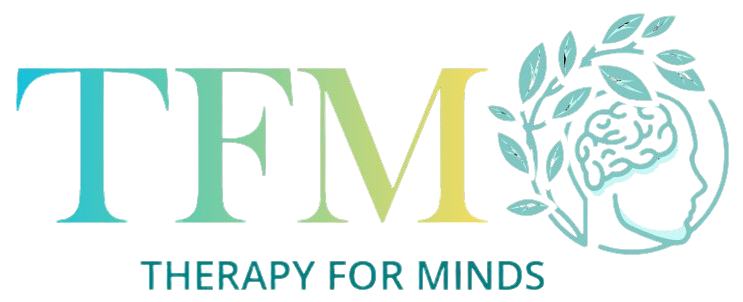Child Therapy: Supporting Your Child’s Mental Health from an Early Age
As parents, caregivers, or guardians, we want the best for our children, particularly when it comes to their well-being. While childhood is often seen as a carefree time, it can also be a period of emotional and psychological challenges. From struggling with schoolwork and bullying to dealing with the impact of family changes or trauma, children face many obstacles that can affect their mental health.
Child therapy provides a safe and supportive environment for children to express their emotions, learn to cope with stress, and develop skills that promote emotional growth. At Therapy For Minds, we understand the importance of mental health at every stage of life. In this article, we will explore the significance of child therapy, why it is essential for children, and how our affordable, high-quality therapy services can help your child overcome their mental health challenges.
What Is Child Therapy?
Child therapy, also known as pediatric therapy or children’s psychotherapy, is a specialized form of therapy designed to help children work through emotional, behavioral, or psychological challenges. It involves a trained therapist who uses age-appropriate techniques to help children express their thoughts and feelings in a safe, confidential environment.
Unlike adults, children often struggle to verbalize their emotions or identify the underlying causes of their distress. Child therapy focuses on providing a space where children can communicate through play, art, storytelling, and other creative methods that are suited to their developmental stage.
Therapists working with children may employ a variety of therapeutic approaches, including:
- Play Therapy: Using toys, games, and activities to help children express their feelings and experiences.
- Cognitive Behavioral Therapy (CBT): Helping children identify negative thoughts and replace them with more positive, helpful thoughts.
- Art Therapy: Encouraging children to use art to express their emotions and gain insights into their feelings.
- Parent-Child Interaction Therapy (PCIT): Helping improve the relationship between a child and their parents by teaching effective parenting strategies.
- Family Therapy: Involving the entire family to address any dynamics that may be impacting the child’s behavior or emotions.
The Growing Need for Child Therapy
Mental health challenges in children are on the rise, and early intervention is essential. According to the Centers for Disease Control and Prevention (CDC), approximately 1 in 6 children in the United States aged 2-8 years have a diagnosed mental, behavioral, or developmental disorder. This includes issues such as anxiety, depression, ADHD, autism spectrum disorders, and behavioral problems.
However, many children do not receive the mental health care they need. Only 20% of children with mental health conditions receive the appropriate treatment, and many parents are unaware of the available resources. Therapy For Minds is committed to providing affordable, quality therapy to children, ensuring that every child has the opportunity to receive the care they deserve.
Why Child Therapy Is Essential
1. Early Intervention for Better Outcomes
When children face emotional or psychological challenges, early intervention can significantly improve their chances of long-term success. The earlier a child receives therapy, the easier it is for them to develop healthy coping mechanisms and emotional resilience. Child therapy can help children overcome challenges before they escalate into more severe mental health issues.
2. Helping Children Cope with Stress
Children, like adults, experience stress. This stress can come from various sources, such as school pressure, changes in family dynamics, bullying, or trauma. Therapy helps children identify the causes of their stress and equips them with the skills to cope in a healthy manner. Whether it’s managing anxiety, dealing with sadness, or processing traumatic events, therapy provides the necessary tools for emotional growth.
3. Building Emotional and Social Skills
Therapy helps children develop important emotional intelligence skills. Through play and conversation, children can learn how to identify and regulate their emotions, communicate effectively, and resolve conflicts in a constructive way. These skills are essential for building positive relationships with peers, family members, and teachers.
4. Addressing Behavioral Issues
Many children struggle with behavioral problems, such as aggression, defiance, or withdrawal. These behaviors often stem from emotional distress or unmet needs. Child therapy provides a safe space for children to express themselves and work through these issues in a non-judgmental way. A therapist can also work with parents to establish strategies for managing challenging behaviors at home and in school.
5. Promoting Healthy Family Dynamics
Sometimes, a child’s struggles are rooted in family dynamics. Whether it’s parental conflict, divorce, or other familial stressors, therapy can help improve communication and understanding within the family. Family therapy and parent-child interaction therapy (PCIT) can help parents and children learn effective ways to interact, solve problems, and strengthen their bond.
The Benefits of Child Therapy
1. Improved Emotional Regulation
One of the greatest benefits of child therapy is that it helps children develop the ability to understand and regulate their emotions. By learning to identify their feelings and express them in healthy ways, children become better equipped to manage their emotional responses to challenging situations.
2. Enhanced Coping Mechanisms
Therapy provides children with practical tools to cope with anxiety, anger, sadness, or frustration. Whether it’s through mindfulness exercises, relaxation techniques, or positive self-talk, children can learn how to manage their emotions and reduce the impact of negative feelings.
3. Better Academic Performance
When children feel emotionally supported and learn how to manage their stress, they are more likely to perform better in school. Therapy helps children address anxiety or distractions that may be affecting their focus and learning, leading to improved academic outcomes.
4. Stronger Relationships
As children learn to communicate their emotions and engage in healthy social interactions, they build stronger relationships with peers, family members, and teachers. Therapy helps children feel more confident in social settings and more comfortable expressing their needs and concerns.
5. Long-Term Mental Health Benefits
Addressing mental health concerns early on can help prevent more serious issues later in life. Children who receive therapy are more likely to grow into emotionally healthy adults with the skills to navigate life’s challenges effectively.
How Therapy For Minds Can Help Your Child
At Therapy For Minds, we understand how vital it is to provide children with the support they need to thrive emotionally. Our team of experienced therapists is dedicated to offering age-appropriate therapy services that cater to the unique needs of children. Whether your child is struggling with anxiety, behavioral issues, or adjusting to a big life change, we are here to help.
We offer affordable, high-quality therapy that can be accessed from the comfort of your home. We believe that every child deserves the opportunity to receive the mental health support they need, and we are committed to making therapy accessible to families nationwide.
Conclusion: Give Your Child the Support They Need
Childhood is a time for growth and exploration, but it can also be challenging for children facing emotional, behavioral, or psychological struggles. Child therapy offers the necessary tools and support to help children navigate these challenges and develop the skills they need to lead healthy, fulfilling lives. At Therapy For Minds, we are committed to providing affordable, high-quality therapy services to support your child’s mental health journey.
If you are concerned about your child’s emotional well-being or notice signs of distress, consider reaching out to us today. Early intervention can make all the difference, and we are here to support your child every step of the way.





